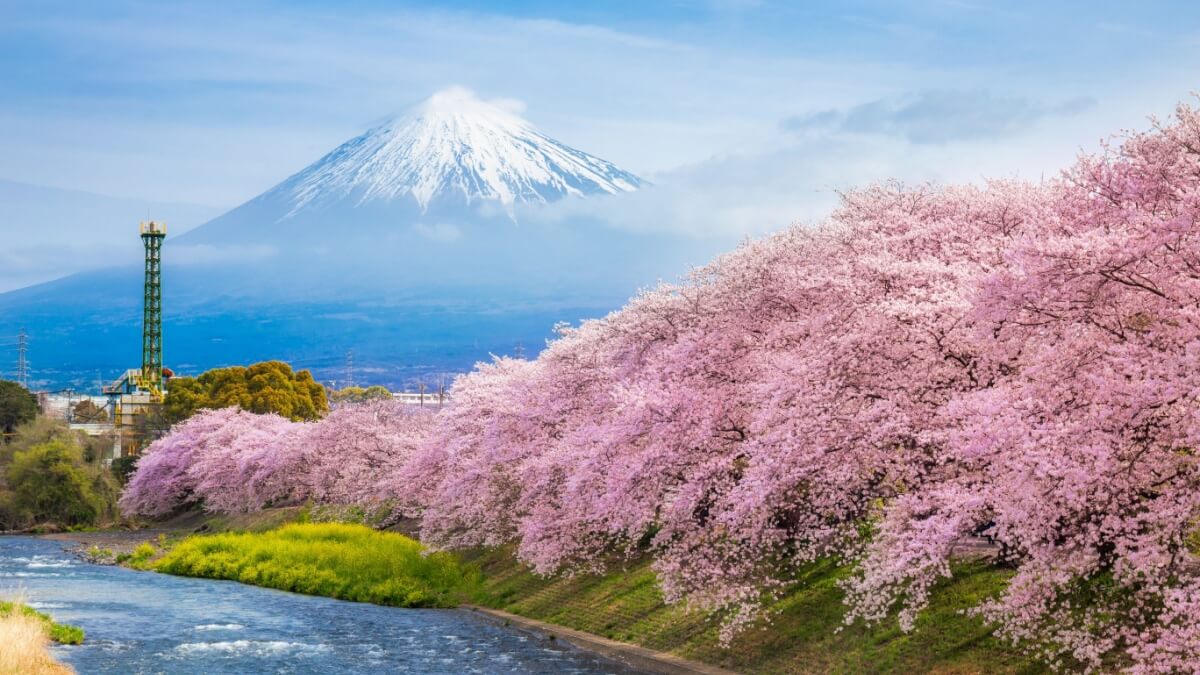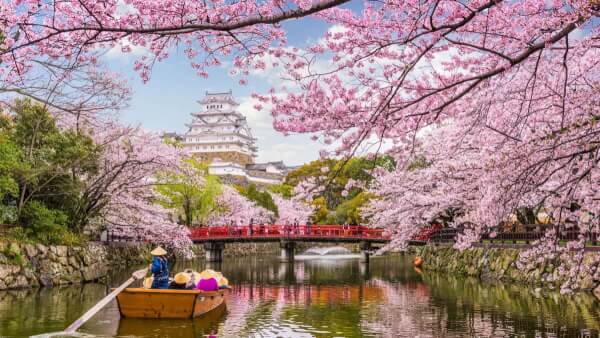Japan visa requirements for New Zealand citizens - Options, fees, and more
Planning your Japan trip? This guide covers the entry requirements and visa options available for Kiwis.

Japan, a nation rich in culture and history, has been a popular choice for tourists worldwide. From the iconic temples and shrines of Kyoto to pop culture and art in Tokyo, Japan offers a nice blend of tradition and modernity.
Generally, you need a visa to visit Japan. However, Japan has friendly relations with most countries and has extended convenient travel privileges to citizens of 71 nations, including New Zealand.
If you’re thinking of making a trip to the Land of the Rising Sun, read on to learn more about how to enter the country for long or short stays, how to prepare for a trip and ways to manage New Zealand dollars and Japanese Yen while abroad.
| Table of contents |
|---|
A visit to Japan for 90 days or less doesn’t require a visa for New Zealand citizens. However, a visa is necessary for New Zealand permanent residency holders to visit or stay in Japan.
Japan has an arrangement with New Zealand, where NZ passport holders can enter the country without a visa as long as they meet these requirements:
Visa-free entry is only for tourism, visiting friends and relatives, attending conferences, and any other unpaid activities.1
While you don’t need a visa, the Japanese government recommends that all passengers submit declarations electronically through the “Visit Japan Web.” This helps with entry procedures at arrival and makes tax-free shopping services available online.
If a New Zealand passport holder wants to stay more than 90 days or earn money while in Japan, they must apply for a regular visa. Visas include working in Japan, doing business, and attending university or higher education. You can apply for the appropriate visa for the intended type of stay:
| Type of Visa | Who can Apply |
|---|---|
| Working Holiday Visa | NZ passport holders between the ages of 18 and 30 who reside in NZ can apply for a working holiday visa. It allows them to work for one year in Japan. |
| Visa with Certificate of Eligibility (CoE) | NZ citizens and resident permit holders holding a CoE can apply for this visa that allows them to undertake higher studies or work in Japan |
| Transit Visa | NZ travellers who stop in Japan en route to a different destination can apply for a transit visa. |
The Working Holiday Visa is a unique one-year visa that allows young people to work temporarily to supplement their income. This visa is only for NZ passport holders who live in NZ; New Zealand citizens residing outside the country are not eligible.
If you’re looking to primarily earn money or perform income-generating activities, you must apply for a Work visa.
Non-New Zealand citizens with NZ Permanent Resident Visas must apply for a visa to enter Japan for sightseeing, visiting friends and relatives, school trips, and non-profit business activities.
Here is a list of all non-immigrant Japanese visas for New Zealand permanent residency holders:2
| Type of Visa | Who can apply |
|---|---|
| Temporary Visitor Visa - Type A | NZ PR Visa holders without NZ passports can apply for a Type A visa to visit relatives and friends and go sightseeing. |
| Temporary Visitor Visa - Type B | NZ residency permit holders without NZ passports can apply for a Type B visa to attend conferences, business meetings, athletic tournaments, and non-profit activities. |
| Temporary Visitor Visa - Type C | NZ residency permit holders without NZ passports can apply for a Type C visa to participate in school trips. |
The 90-day Temporary Visitor Visa is valid for tourism, visiting friends or relatives, attending business conferences, and other activities. Depending on the purpose of their visits, NZ resident permit holders can also apply for a Transit Visa and Visa with CoE eligibility.
It’s important to note that whether you need a visa depends on the passport you are travelling on. NZ resident permit holders who are citizens of the 71 nations with which Japan has a tourist visa-free arrangement don’t need to apply for a tourist visa.3
| Looking for a Japan travel guide? Click here to learn more about when the best time to visit Japan is and find out how you can get the most out of JPY conversions with Wise |
|---|
The Consulate-General of Japan in Auckland offers a straightforward process for applying for temporary visitor visas for NZ residence permit holders. While you can’t apply online, you can easily submit your visa applications in person or by post.
Here's a step-by-step guide to help you through the process.4
You can apply for a visa up to three months before your intended arrival date in Japan. Depending on your passport and application, the visa processing time is around five working days.
Depending on where you live, you can submit your Working Holiday Visa applications at the following three offices.
The Consulate-General of Japan in Auckland handles the visa applications with CoE. The application process is the same.
Keep in mind that the Consulate-General Office does not offer any urgent or priority visa processing services.5
Nineteen airline companies offer multiple flights from New Zealand to Japan. They include:
The most popular airline route is from Auckland Airport to Narita International Airport. On average, a one-way flight takes around 16 hours. The average flight time to Kansai International Airport is around 19 hours, and to Haneda International Airport is approximately 20 and a half hours.
Usually, the flights from New Zealand to Japan are direct flights. However, depending on the airlines, there could be one or two stopovers which can bump up the flight time.6
New Zealand citizens must keep in mind that Japan severely restricts what items can be brought into the country. Here are some of the items restricted and prohibited by law:7
Before flying to Japan, have the following documents ready:8
Travelling to Japan is exciting but you may feel there's a lot to do before you leave- here’s a checklist to help you pack, prepare and have a good time when you arrive:
Many travellers opt for travel insurance to get financial coverage for the unexpected. Travel insurance provides reimbursement for travel surprises like lost baggage, illness or injury on a trip, flight delays, or theft.
Travel insurance requires an upfront payment for the policy. If you don’t use the insurance, you won’t receive the funds back, but the peace of mind of having coverage can make it worth it. Learn more in our full guide about the best travel insurance in New Zealand.
Managing your finances in Japan should be relatively easy with digital transactions and cards that can be used internationally. All major credit cards can be used in the country, and there are ATMs available for cash, so you won’t need a bank account locally - especially for a short-term stay.
One thing to remember is that prices in Japan can be higher than you’re used to, so plan your finances accordingly and research ways to save money, like finding budget eats, when you’re there.
You can use your debit and credit cards easily in Japan, or wallets like Google Wallet or Apple Pay (if you have a mobile data plan). But when looking at your budget, which card you use can make a big difference. Most credit cards can be expensive to use in Japan because of foreign transaction fees, currency markup charges, and exchange rate fluctuations. Check the fees and charges on your card before your trip.
Save money by switching to a Wise travel card. You can convert New Zealand dollars to Japanese Yen and hold a balance on a Wise travel card at the actual mid-market exchange rate. That means no markups or extra fees on your exchange rate.
With your Japanese Yen, you can spend like a local on your trip. You can transfer money to make payments or reservations, and with the Wise travel debit card, you can spend directly from your balance with a swipe or a tap. And you can add money to your balance on the Wise app, with just one small fee, so you can top up as you go.
Cash is still a popular way to pay in Japan, and is still used at smaller shops or restaurants.
It makes sense to carry sufficient Yen when travelling in Japan, but just be careful, as cash can be easily misplaced or stolen. One way to avoid carrying too much cash with you as you travel is to use local ATMs as needed, but you'll need to watch out for cash withdrawing fees charged by your cards carry, plus any currency conversion markups on mid-market rates.
If you need cash at a local ATM, try the Wise travel card. With Card get up to NZD 350 per month in free withdrawals from 3 million ATMs worldwide. It is an easy and safe way to get cash abroad.
A trip to Japan is a once-in-a-lifetime experience. Get the most out of your trip by getting a Wise travel card. With a Wise travel card, you can load up Japanese Yen so you can spend and travel like a local. Whether it's trying amazing sushi, visiting a teahouse or buying the latest fashions, you can pay for it all with a Wise travel card.
Wise uses smart tech to make global payments fast, simple and easy. You will always pay the real mid-market exchange rate when converting from New Zealand dollars- that’s the same rate you see on Google. And with just a small fee, you can keep more money in your wallet when compared to banks or credit card companies. And with an award-winning app, you can track your spending and keep to a budget easily.
Join Wise today and see how easy it is to spend like a local in Japan.
Sources used for this article:
Sources verified on 9 August 2024.
*Please see terms of use and product availability for your region or visit Wise fees and pricing for the most up to date pricing and fee information.
This publication is provided for general information purposes and does not constitute legal, tax or other professional advice from Wise Payments Limited or its subsidiaries and its affiliates, and it is not intended as a substitute for obtaining advice from a financial advisor or any other professional.
We make no representations, warranties or guarantees, whether expressed or implied, that the content in the publication is accurate, complete or up to date.

Planning your Japan trip? This guide covers the entry requirements and visa options available for Kiwis.

Wondering when the best time to visit Japan is? Learn more about weather, seasons and what to do throughout the year in Japan.